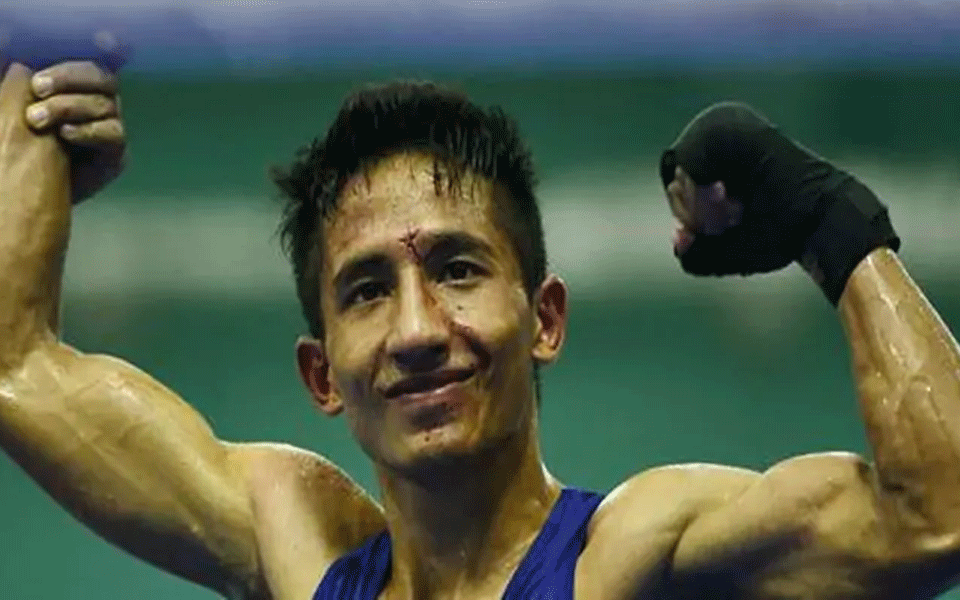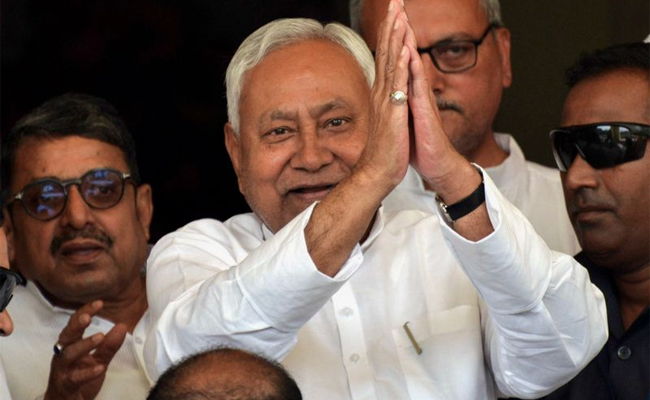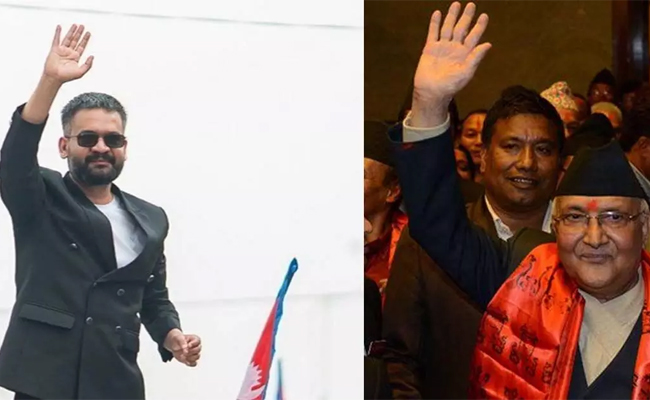Bangkok: Kavinder Singh Bisht (56kg) produced another lion-hearted performance to enter the finals along with three other Indians in the Asian Boxing Championships here on Thursday.
Deepak Singh (49kg) and Ashish Kumar (75kg) joined Bisht in the men's finals, while Pooja Rani (75kg) advanced in the women's draw in the early session of the marquee event's last-four stage.
Settling for bronze medals were veteran L Sarita Devi (60kg) and last edition's silver-medallist Manisha (54kg).
It was a positive start to the day for India with national champion Deepak advancing to the final without exchanging a single blow after getting a walkover from Kazakhstan's Temirtas Zhussupov due to injury. It was a second successive walkover to the Indian.
Next up was Bisht, who had upstaged reigning world champion Kairat Yeraliyev of Kazakhstan in his quarterfinal contest.He was up against Mongolian Enkh-Amar Khakhuu and was aggression personified.
Willing to risk a few blows, the quick-moving Bisht stunned his rival by the sheer power of his punches and gave him a bloodied right eye in the second round.
The intensity was high in the final three minutes and Khakhuu inflicted a cut over Bisht's right eye as well. However, that was not enough to deter Bisht, who edged out Khakhuu in a split verdict.
The boxer from Uttarakhand came into the tournament after a gold-winning show at the GeeBee Cup in Finland.
Another high-voltage bout followed with Ashish fighting it out against Iran's Seyedshahin Mousavi.
The Indian was slow off the blocks against the sprightly Iranian, who clearly had the early momentum.
But Ashish raised the bar in the second and third rounds to counter Mousavi with some precisely-placed hooks and straights
Among the women, Manisha lost to Taiwan's Huang Hsiao-Wen, while Sarita (60kg) went down to China's Yang Wenlu.Pooja (75kg) was up against Kazakhstan's Fariza Sholtay and emerged triumphant in a unanimous decision.
The evening line-up has Shiva Thapa (60kg), assured of an unprecedented fourth successive medal, taking on Kazakhstan's Zakir Safiullin, a 2015 silver-winner in the event.
Last edition's bronze-medallist and Asian Games champion Amit Panghal (52kg) and Ashish (64kg) will clash with China's Hu Jianguan and Uzbekistan's Bobo-Usmon Baturov respectively.
Commonwealth Games silver-medallist Satish Kumar (+91kg) has Kazakh Kamshybek Kunkabayev waiting for him.Among the women, former junior world champion Nikhat Zareen (51kg) will face Vietnam's Nguyen Thi Tam and world silver-medallist Sonia Chahal (57kg) will take on Thaliand's Nilwan Techasuep.
National champion Simranjit Kaur (64kg) will square off against Uzbekistan's Maftunakhon Melieva.
Let the Truth be known. If you read VB and like VB, please be a VB Supporter and Help us deliver the Truth to one and all.
Patna (PTI): Bihar Chief Minister Nitish Kumar is likely to file nomination papers for the Rajya Sabha polls on Thursday, according to JD(U) leaders.
Kumar may file his nomination papers at the state assembly around 11 am, they said.
BJP president Nitin Nabin will also file his nomination papers for the Rajya Sabha polls.
Union Home Minister Amit Shah is expected to be present at the time of filing of the nomination papers.
State minister Vijay Kumar Chaudhary had confirmed on Wednesday that Kumar was considering entering the Rajya Sabha, which would bring to an end his tenure as the longest-serving chief minister of the state.
With Kumar likely to step down after leading the ruling NDA to a landslide victory in the 2025 assembly elections, a BJP leader is expected to take over the top post.
If that happens, Bihar will get its first BJP chief minister -- the only Hindi heartland state where the party has not held the office so far.
However, an official announcement regarding Kumar's entry into the Upper House of Parliament is yet to be made.
Five Rajya Sabha seats from Bihar will go to the polls on March 16.
The elections will be held as the tenures of JD(U)'s Harivansh Narayan Singh and Ram Nath Thakur, RJD's Prem Chand Gupta and Amarendra Dhari Singh, and RLM's Upendra Kushwaha are ending.
As per the latest tally in the state legislature, all five seats would now go to the ruling NDA.
Before filing his nomination papers, the BJP president will visit the revered Mahavir Temple here and offer prayers.





